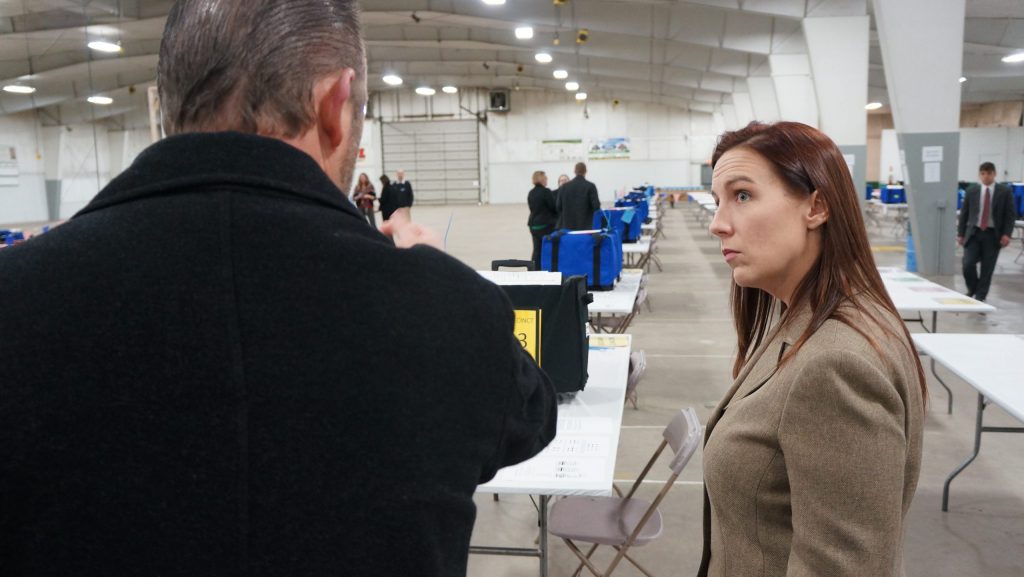Created Equal: Shortage of local clerk candidates in Michigan raising concerns about election integrity
Justina Giglio July 30, 2024According to Canton Township Clerk Michael Siegrist, of the 1,240 Michigan township clerks up for election in November, 118 have no clerk candidates running.

Ingham County Clerk Barb Byrum (right) confers with an attorney from the campaign of President-elect Donald Trump at recount.
Local clerks play a critical roll in ensuring free and fair elections.
City and township clerks hold three major responsibilities – keeping track of records like birth, death and marriage certificates, and overseeing financial operations and local elections.
According to Canton Township Clerk Michael Siegrist, of the 1,240 Michigan township clerks up for election in November — accounting for roughly 82% of the state’s 1,516 local election officials — 118 have no clerk candidates on the ballot.
“We’ve never seen anything like this in history, 9.5% of all clerk races this year will have NOBODY elected.” he wrote on X earlier this month. “Why doesn’t anyone want to do this job? How does a state deal with such a massive labor shortage? Who will run elections in these communities?”
Today on Created Equal host Stephen Henderson was joined by Secretary of State Jocelyn Benson, Ottawa County Clerk Justin Roebuck and Michigan Advance reporter Jon King to discuss how to protect election integrity in cities or townships without clerk candidates.
Subscribe to Created Equal on Apple Podcasts, Spotify, Google Podcasts, NPR.org or wherever you get your podcasts.
Guests
Jocelyn Benson is the secretary of state for Michigan. She says the state is prepared with a back-up plan when there aren’t clerks to fill positions.
“When there is a vacancy at any point — or if a clerk fails to do their duty, their legal duty, under the law — we at the state level have supervisory authority where we can appoint someone or come in,” she said. “Oftentimes that’ll involve working with folks in the community to identify someone [like] local officials, mayors, township supervisors, and county clerks. [They] also have different elements of supervisory power over local jurisdictions to make sure the job gets done. So even if there’s a vacancy, we still have ways of making sure the work happens, [so] that democracy continues to go smoothly.”
Jon King is a reporter for Michigan Advance and the author of a recent article about the state’s local clerk candidate shortage. He says the additional duties given to clerks means there’s a larger personal cost.
“The people that are administering these elections are, I think, getting somewhat swamped. I mean, we talked about early voting starting this weekend…I saw several online posts from clerks who were at their early voting areas, and they have their kids in the other room, coloring,” he said. “And, [on] one hand, you go, ‘Oh, that’s cute.’ On the other hand, you realize that there is a cost, a personal cost to be paid.”
Justin Roebuck is the clerk for Ottawa County, Michigan. He says clerks work with a system of municipal checks and balances, meaning that those who run elections know their community very deeply.
“I’ve been a county clerk for a decade, and the people that I work with as my township’s clerk, are experts in their field, but they’re also experts in their communities,” he said. “You know, they know their communities.”
Listen to Created Equal with host Stephen Henderson weekdays from 9-10 a.m. ET on 101.9 WDET and streaming on-demand.
